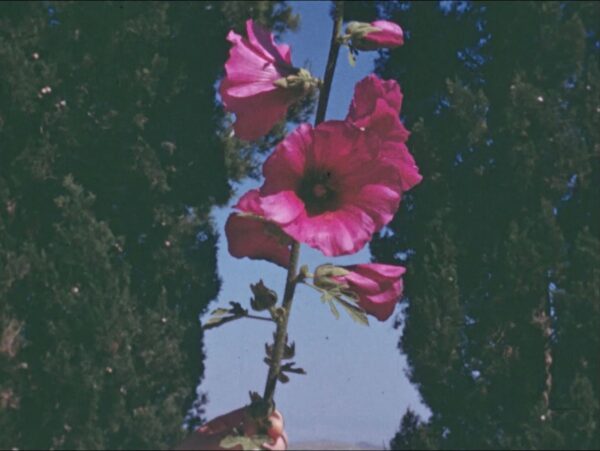Listed: Top 3 of 2022 (Critics’ Choices)
In a new yearly tradition, Talking Shorts invites filmmakers, critics and programmers to pick their three favourite short films of the past year.
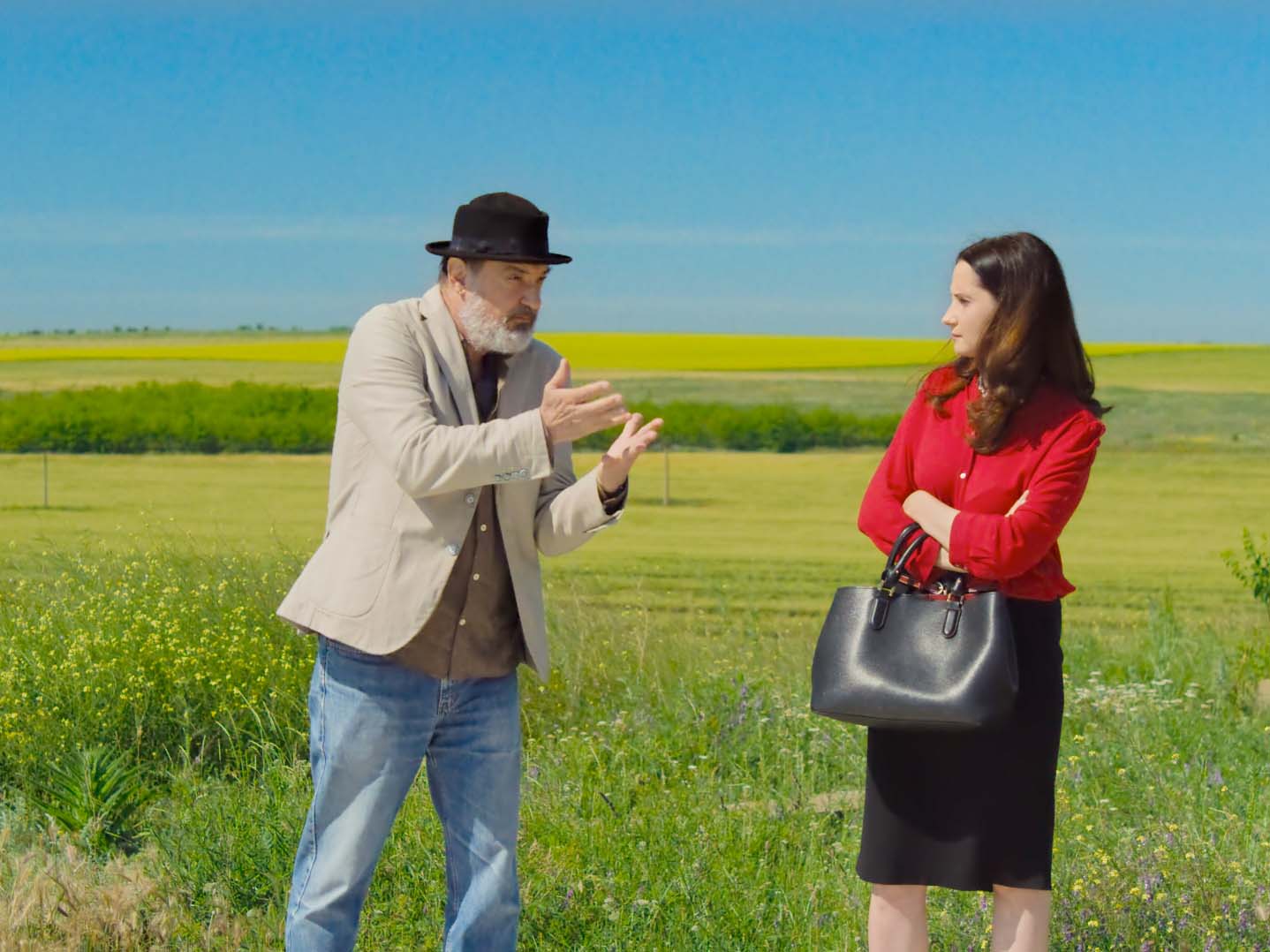
Inspired by countless ‘year end’ lists that tended to ignore the short film format, the following long read is an attempt to redress the balance whilst also giving those in the short film industry a chance to ruminate on the films that resonated with them on a personal basis. The idea originated some years ago and is now arriving at Talking Shorts, introducing a new yearly tradition for the magazine. For the first time, the list will be divided into separate sections, namely programmers, critics and filmmakers. It’s a particular welcome to include a large number of filmmakers, something that has been lacking in the lists of the past. Talking Shorts would like to express its gratitude for all who responded.
This list originated by Laurence Boyce as a “top 5” some years ago, consecutively published by Cineuropa and Kinoscope. Arriving at Talking Shorts, the list is now a “top 3”, designed to give often busy respondents more of an opportunity to share their thoughts on the films as well as giving it all a tighter focus. The list has never been interested in being a definitive ‘best of’ the year–short films have always resisted the ranking and five star ratings that are often associated with the world of mainstream features. But with shorts still being hugely un(der)represented, the list presents an opportunity to celebrate and shine a light on those films that deserve to be lauded.
Each respondent was given a choice of three films. No ranking was required, so each list is not necessarily in order. Since release dates are especially fluid in the short film world, respondents were asked to choose films that “came to prominence in 2022”. Exactly what that meant remained under each individual’s purview. Each list therefore also remains the choice of the individuals who responded and it (and the motivations therein) do not necessarily reflect that of the organisation(s) they work for.
Chris Childs, filmmaker and critic
United Kingdom
— Bird in the Peninsula by Atsushi Wada (France, Japan – 2022, 16’): A welcome return from this master of modern animation. An endlessly mysterious film, with suggestions of something darker. Wada has created their own cinematic language.
— In the Big Yard Inside the Teeny-Weeny Pocket by Yoko Yuki (Japan – 2022, 6’): The most intense, unrelenting film of the year. Yoko Yuki creates a non-stop avalanche of colourful images. It’s sweet, it’s hardcore avant-garde, and it’s made by one of the most exciting animators alive.
— Cuber by Vince Collins (USA – 2022, 2’): Forty years after his nightmarish classic ‘Malice in Wonderland’, Collins still manages to provoke, confuse, and delight. You can’t return from his animated world unchanged.
Bo Alfaro Decreton, film critic, selection committee Film Fest Gent
Belgium
— The Sower of Stars (El sembrador de estrellas) by Lois Patiño (Spain – 2022, 25’): This film draws you into abstract wholes configured by lights that behave like a language made up of signs one cannot fully grasp but whose beauty lies in the space they provide and which you can occupy… or which can occupy you. The nature of the dialogue does not rely on the otherwise predominant flow of the conversation, but the isolated beauty of each expressed thought.
— It’s Raining Frogs Outside (Ampangabagat Nin Talakba Ha Likol) by Maria Estela Paiso (Philippines – 2022, 14’): Maria Estela Paiso blends an array of visual styles and registers with masterful fluidity that imbues her film with a unique dynamic and creates an impressive anthem for all people “in personal states of an emergency”. With her debut film, Paiso already leaves you on the look-out because of her firm grasp on how to give the spectator one of the most beautiful gifts: that of restlessness, or the persistent idea that anything can always happen. It’s cinema of the explored (rather than promised) possibility.
— Ice Merchants by João Gonzalez (Portugal, France, United Kingdom – 2022, 14’): Contrary to its title, rather a merchant of warmth by the way it portrays the tenderness between a father and his child in times of embodied loss. It is a reminder that it is not the words we need but rather the feeling of connection with fellow beloved human beings when one’s world seems baffled by the greatest of silences. It is a tale of hope without taking that feeling for granted. The film will make you fall in love, seemingly effortlessly, and to the rhythm of one of last year’s most beautiful soundtracks.
Niv Fux, film critic, curator, Managing Director T-Port
The Netherlands
— Nest (Hreiður) by Hlynur Pálmason (Iceland, Denmark – 2022, 22’): As he follows the process of a tree house construction by his children, Hlynur Pálmason presents a clever, tender and playful moral on the significance of time and its ties with human and nature. Along this way, we discover how much richness one frame can carry.
— Exalted Mars (Mars exalté) by Jean-Sébastien Chauvin (France – 2022, 18’): An endless stream of traffic on a highway just before first light. Then, a naked man immersed in deep sleep appears; his body perspires. By juxtaposing these two seemingly unrelated occurrences, Jean-Sébastien Chauvin builds a sensual, meditative journey, giving room for affect and sensations before analytical thinking. ‘Exalted Mars’ reminds us of the potency of experimental minimalistic cinema.
— Cherries (Uogos) by Vytautas Katkus (Lithuania – 2022, 15’): Layers of the past gradually reveal themselves in this delicate, warm, open-ended work of a father-son relationship. As time shows its traces on a summer afternoon of cherry picking, both characters learn what was lost and cannot be regained.
Susanne Gottlieb, film critic and journalist
Austria
— Nest (Hreiður) by Hlynur Pálmason (Iceland, Denmark – 2022, 22’): A wonderful blend of the harsh conditions of nature and people coming together.
— The Potemkinists (Potemkinistii) by Radu Jude (Romania – 2022, 18’): Radu Jude once again slyly shines a light on his home country’s history and its relationship to Russia.
— Lay Me by the Shore by David Findlay (Canada – 2022, 19’): Insightful short about rejecting and dealing with loss at a time in one’s life, when one is specifically sensitive to change.
Leonardo Govoni, film critic
Italy
— Nest (Hreiður) by Hlynur Pálmason (Iceland, Denmark – 2022, 22’): Constructed almost as a series of still shots elliptically following one another, ‘Nest’ is a quiet and delicate rumination on time, memory, and brotherhood that is able to generate a sense of ethereal belonging to what and who is around us.
— Starfuckers by Antonio Marziale (USA – 2022, 15’): A daring exploration of the boundaries between cinema and performance, narrative and abstraction, ‘Starfuckers’ is a courageous and confronting work capable of sinking you in as it simultaneously tears you (emotionally) apart.
— TRIA by Giulia Grandinetti (Italy – 2022, 17’): Set in a dystopian—yet really close to us—space and time, TRIA uniquely engages with the cinematic language to give life to a Greek tragedy that, in all its atmospheric mysticism, delves into the feeling(s) and meaning(s) of betrayal.
Carmen Gray, film critic, arts journalist, programmer Berlinale Generation, Internationale Kurzfilmtage Winterthur
Germany
— Neighbour Abdi (Buurman Abdi) by Douwe Dijkstra (The Netherlands – 2022, 30’)
— Hardly Working by Total Refusal (Austria – 2022, 20’)
— Haulout by Maxim Arbugaev, Evgenia Arbugaeva (United Kingdom, Russia – 2022, 25’)
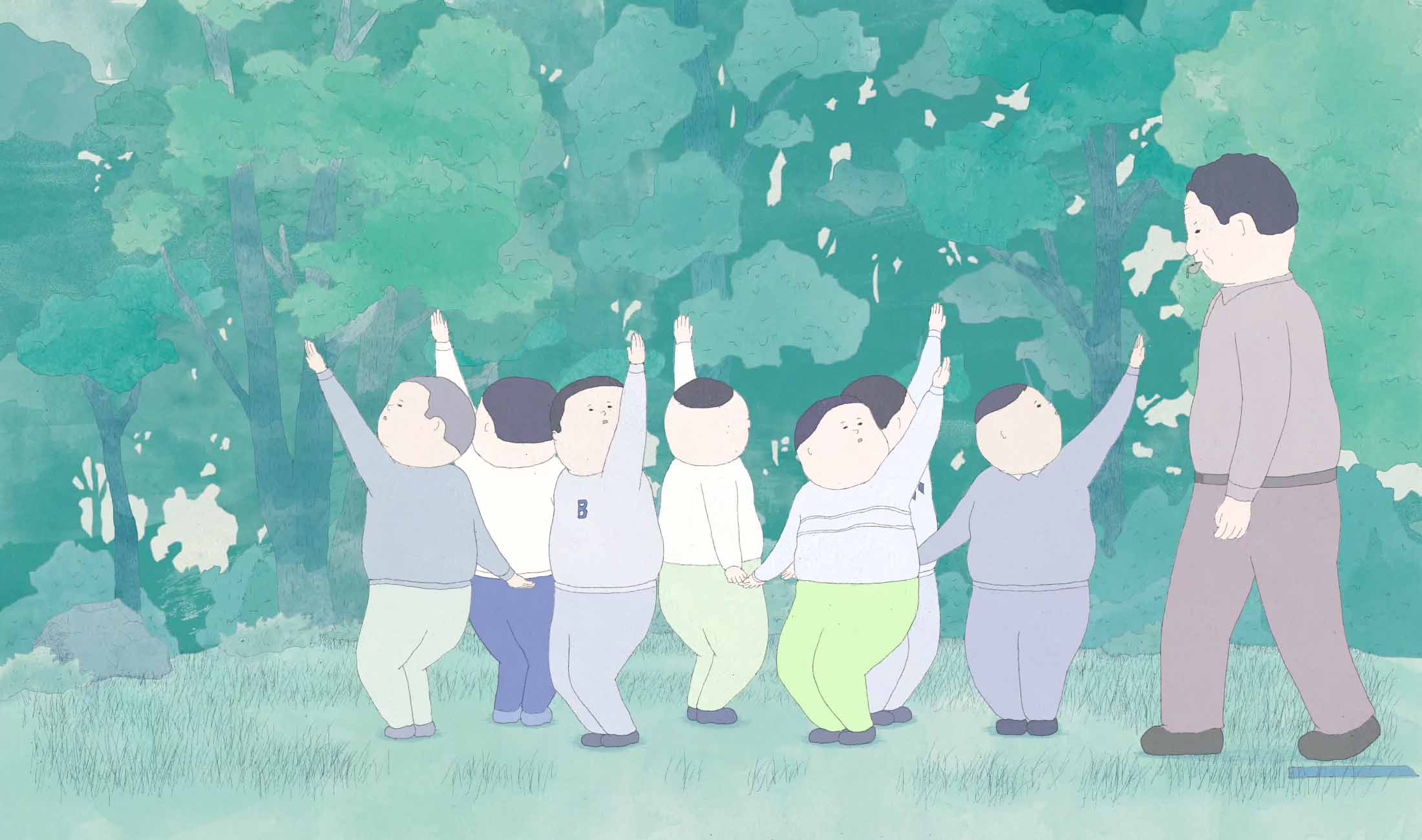
Bird In The Peninsula (Atsushi Wada, 2022)
Mariana Hristova, film critic Cineuropa, programmer Sheffield DocFest
Spain
— Laboratory No. 2 (2 تاقیگەی ژمارە’) by Edris Abdi, Awara Omar (Iraq (Kurdistan) – 2021, 16’): A portrait of an extraordinary man who has befriended death, hence nothing left to be afraid of; a charismatic character, reminding me of the taxidermist in Kiarostami’s ‘Taste of Cherry’ whose wisdom about death originates in the deep understanding of life.
— Subtotals (Majmouan) by Mohammadreza Farzad (Iran – 2022, 16’): A captivating mixture of poetry and mathematics; a visual inventory of everyday moments of fleeting beauty and memory-stored statistics of personal ups and downs. The film motivated me to request and watch Mohammadreza Farzad’s earlier films and thus discover his enchanting intimate cinema.
— Affricate (Affrikáta) by Anna Gyimesi (Hungary – 2022, 26’): A film-explosion, overflowing with repressed desires whose fabric is pure emotion. Though trauma and its processing are often explored on screen, ‘Affricate’ adds a special depth to its exploration by managing to express soul tremors in a particularly sensitive manner.
Tara Karajica, founding editor Yellow Bread Shorts, programmer PÖFF Shorts, Head of Shorts SEEFest
Serbia
— An Irish Goodbye by Tom Berkeley & Ross White (United Kingdom – 2022, 23’): A poignant and humorous film about grief, family dysfunction and reconciliation, and letting go. In a short time, the film compellingly tackles a myriad complicated subjects and shows us that not only ‘carpe diem’ is the way we should live our lives, but that we can also pay tribute to our dearly departed in fun way, and in doing so, we may be able to reconnect with our estranged selves and siblings. All this with acid-tongued Irish storytelling set against the atmospheric splendor of Ireland’s countryside.
— Bus Girl by Jessica Henwick (UK – 2022, 11’): A bold and engaging neon-colored love letter to the art of cooking shot entirely on a series of Xiaomi MI 11 smartphones over three days. It is a powerful and tender film about tenacity, following our dreams, and being a woman in a male-dominated industry.
— Airhostess-737 by Thanasis Neofotistos (Greece– 2022, 16’): As much a cinematic hit as you can get one. May be utter madness, but it is also a subtle exploration of grief and trauma and the need to let go. Brilliantly conceived and executed. Brilliantly different.
Frédéric Jaeger, Chief Editor Critic.de, filmmaker, Head of Programme International Film Festival Mannheim-Heidelberg
Germany
— It Doesn’t Have to Be Today (Muss ja nicht sein, dass es heute ist) by Sophia Groening (Germany – 2022, 8’): Written by Sophia Groening together with Jan Bonny and Jan Eichberg, a wonderfully casual restlessness pervades the film, an excitement and tension like that of the Safdie brothers (‘Uncut Gems’, ‘Good Time’). Stylistically, Groening asserts an immediacy and something unformed that couldn’t be more formed. An excessively unassuming film.
— Islands in the City (Die geheimnisvollen Inseln) by Marian Freistühler (Germany – 2021, 23’): Being in love, longing, dreaming of what is absent. Very close, but unattainable. Like the ship on which his lover is, over there, in the harbour. The director, his alter ego, himself: Marian is here, standing in front of us, as if to tell us not to take him too seriously. With a queer matter-of-factness that hides itself, only to push itself into the picture all the more deliberately, he tells us about life in the pandemic without telling us about it. The ship is leaving, why run after it?
— It Is Not the Brazilian Homosexuals Who Are Perverse but the Situation in Which They Live (Nicht die brasilianischen Homosexuellen sind pervers, sondern die Situation, in der sie leben) by Eduardo Mamede, Leandro Goddinho and Paulo Menezes (Germany – 2021, 12’): The mundane conversations between two friends bathing naked in the lake and their exposed, self effacing body positivity form the film’s deceptive offers of harmlessness before it almost imperceptibly turns into a political pamphlet, only to be recaptured in comedic absurdity.
Savina Petkova, film critic MUBI Notebook, Little White Lies, Talking Shorts, Senses of Cinema
United Kingdom
— Instant Life by Anja Dornieden, Juan David González Monroy, Andrew Kim (Germany, United States – 2022, 27’): Three is a charm, three is a crowd, three is holy, three is everything and anything.
— On Xerxes’ Throne (Στον Θρονο Του Ξερξη) by Evi Kalogiropoulou (Greece – 2022, 15’): An ode to the hunger of the tactile kind, to teach us how to hold ourselves before holding another.
— Handbook (Handbuch) by Pavel Mozhar (Germany – 2021, 26’): Enter. Tap on the shoulder. Exit. It’s never as easy as it seems when it comes to trauma. But we keep trying.
Vladan Petkovic, film critic Cineuropa, programmer ZagrebDox, IDFA, FeKK
Croatia
— A Robust Heart (Un corazón más contundente) by Martín Benchimol (Argentina, USA, United Kingdom – 2022, 12’): Masterful set-up and editing, and the amazing capability of the filmmaker to pull out the best and the most touching from the protagonists, make this talking-heads documentary a poignant study into masculinity, without ever referring to any trending hashtags.
— Now I’m In The Kitchen by Yana Pan (USA – 2022, 5’): I have never seen an animated film with such an original aesthetic that so perfectly fits its subtle yet devastating emotion.
— The Seine’s Tears (Les Larmes de la Seine) by Yanis Belaid, Eliott Benard, Nicolas Mayeur, Etienne Moulin, Hadrien Pinot, Lisa Vicente, Philippine Singer & Alice Letailleur (France – 2021, 9’): A tour de force of storytelling, technical prowess and emotion. Moreover, it’s a student film.
Līga Požarska, film journalist
Latvia
— Dance (Šokis) by Danielius Minkevičius (Lithuania – 2021, 20’): The dialogue builds up the tension and reveals that the distance and unresolved issues between father and son have been there for a while now.
— The Devil (Diabel) by Jan Bujnowski (Poland – 2022, 19’): Cheerfully plays with the Devil’s representation in mythology, additionally ironizing his remarkable impact on faithful Catholics. The highly religious society and the complicated reality have enabled the existence of such characters as the Devil, the slightly dumb senior couple, the lethargic granny and the wife-beating corpse. It’s a merry comedy for Western audiences and a grotesque satire for many Eastern Europeans.
— Women of Virtue (Les Vertueuses) by Stéphanie Halfon (France – 2021, 29’): Wonderful and tactful film about a young girl learning about being a women… Being a woman in a strictly religious society (Orthodox Judaism) that teaches her that she’s born impure.
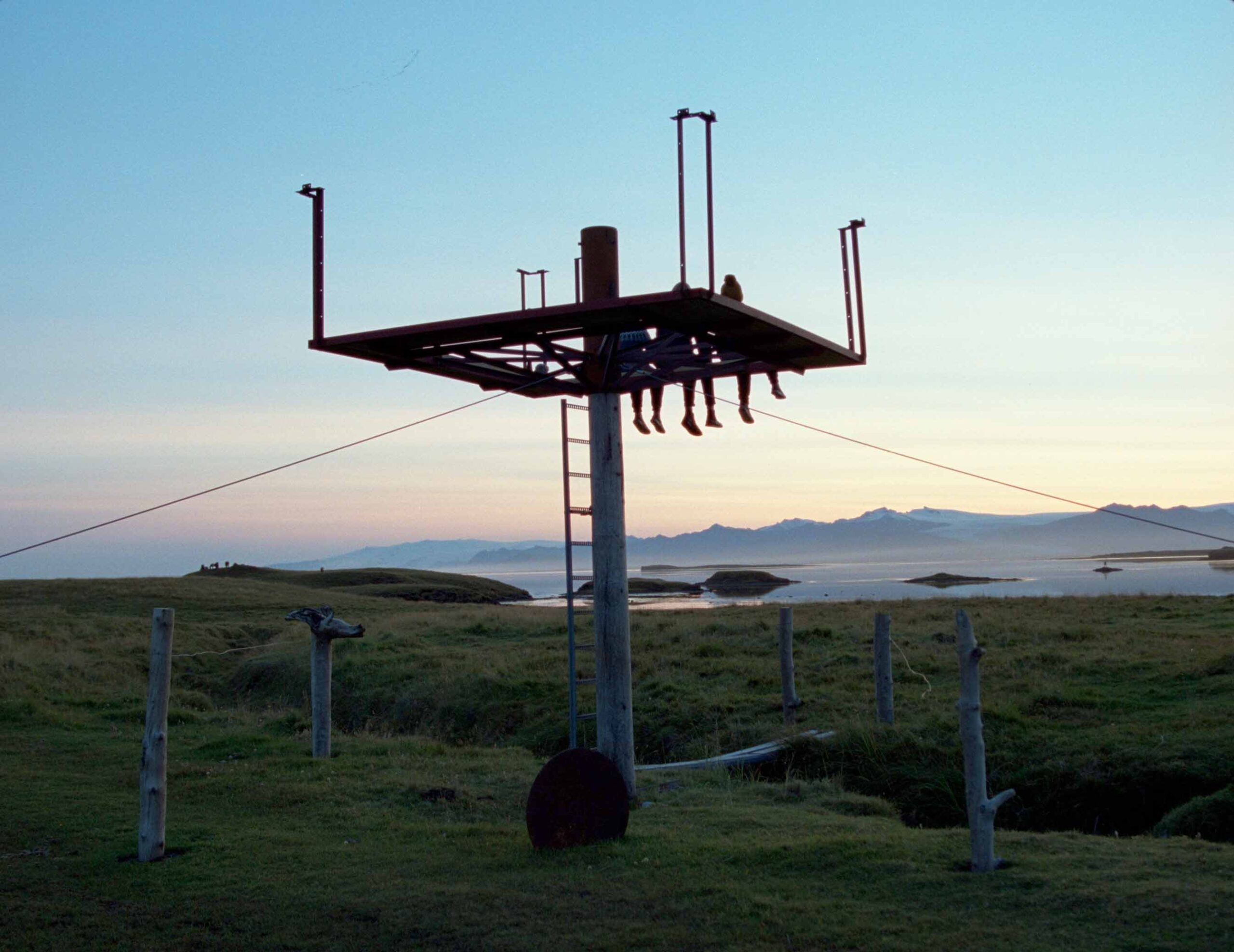
Nest (Hlynur Pálmason, 2022)
Leong Puiyee, Senior Manager Objectifs, programmer Busan International Film Festival, SeaShorts Film Festival
Singapore
— It’s Raining Frogs Outside (Ampangabagat Nin Talakba Ha Likol) by Maria Estela Paiso (The Philippines – 2021, 14’): Transcending from childhood memories into a whirlpool of nightmarish internal struggle, this film left an uneasy feeling that questions one’s personal psyche and identity. A memorable and impressive debut short film that hits you with a motley of emotions.
— A Worm, Whatever Will Be, Will Be (住在她身体里的虫) by Mickey Lai (Malaysia – 2022, 12’): Revisiting recorded memories of a deceased loved one is never easy. There is a tender sadness as the last conversations between the filmmaker and her late grandmother unfolds. Quiet and intimate, this film is an honest and raw portrait of loss and love.
— SMRT Piece by Charlotte Hong (Singapore – 2022, 5’): Infused with a mix of personal, spontaneous conversations, colourful illustrations and the noise of daily life, this is a natural, thoughtful piece about the vulnerabilities of being queer.
Niels Putman, Artistic Director Kortfilm.be, Chief Editor Talking Shorts, Programmer Fantoche International Animation Festival, Film Fest Gent
Belgium
— Misty Picture by Matthias Müller & Christoph Girardet (Germany – 2021, 16’): Brilliant blend of city symphony, cinema history, media discourse, architectural iconography — all by means of great archival footage editing. Made me excited about the cinematic art form like no other film last year.
— Exalted Mars (Mars exalté) by Jean-Sébastien Chauvin (France – 2022, 18’): The word poetry gets thrown around so easily, too easily, in regards to visual art and in the context of film criticism, but Jean-Sébastien Chauvin’s film not only deserves but transcends it. Both sound and sweat are of equal importance in this awakening of day; a beautiful dawn for both human and big city life. Never before has a wet dream made me feel so existentially lonely.
— How Do You Measure A Year? by Jay Rosenblatt (USA – 2021, 29’): Coming of age video diary on a father-daughter relationship. Minimalistic both in form and structure, therefore vastly mistaken as ‘simple’, but actually poignant and very clever. Together with Haulout and Ice Merchants probably one of those films most deserving of its Academy Award nomination—and I take all categories into consideration when I say that.
Celine Roustan, film critic Short of the Week
France
— Ice Merchants by João Gonzalez (Portugal – 2022, 14’): I’m not original putting this film in my favourites of 2022 but I still can’t get over how deeply it moved me, and how impressed I still am watching it over and over again. The combination of the animation style with the narrative is gorgeous, mesmerising, and loses you in the universe the filmmaker crafted.
— Brutalia, Days Of Labour by Manolis Mavris (Germany – 2021, 26’): I know this film premiered in 2021 (and was immediately awarded) but it kept on making strides around the world in 2022. Between the sharpness of the screenplay, and the impeccable framing and cinematography, this film is equally successful at being entertaining and prompting deep reflections.
— Coming Home by Naim Naif, Margot Bowman (USA – 2022, 9’): By focusing on a collective of Palestinian-American dabke dancers, this documentary not only celebrates this traditional dance but it also captures the sense of community that Palestinian-Americans have created in Bay Ridge, Brooklyn.
Marina D. Richter, Chief Editor Ubiquarian
Austria
— It’s Raining Frogs Outside (Ampangabagat Nin Talakba Ha Likol) by Maria Estela Paiso (Philippines – 2021, 14’): In her outstanding, dark drama about the identity crisis and childhood memories done with an impressive know-how, Maria Estela Paiso generates a nightmarish, hallucinatory world through scans of objects and old photographs in their granular glory, underwater shots, cut-outs, collages, VHS recordings of a creepy TV program for kids, and computer generated images.
— The Water Murmurs (Hai Bian Sheng Qi Yi Zuo Xuan Ya) by Story Chen (China – 2022, 15’): What would we do if the life we knew was to end? Chen examines the fragility of places we consider as safe environments by putting her main character in a post-catastrophe setting, following her as she bids goodbye to people and places she holds dear.
— The Human Torch (Ihmissoihtu) by Risto-Pekka Blom (Finland – 2022, 6’): This surprisingly dense film makes us question inherited codes of obedience. The mundane dilemma of crossing the road on the red becomes a crisis between structure and chaos.
Jason Todd, critic Talking Shorts, programmer Les Rendez-Vous Québec Cinéma
Canada
— Budapest Silo (Szabadkikötő) by Zsófia Paczolay (The Netherlands, Hungary, Portugal, Belgium – 2022, 23’): Rarely I have seen a short documentary film sporting such a compelling and strong visual identity while still being in perfect synch with its theme and protagonist.
— Simo by Aziz Zoromba (Canada – 2022, 25’): Thanks to its tightly written screenplay and inventive mise-en-scène, this film doesn’t need to thread on brand new grounds to feel like a breath of fresh air. Already one of the most exciting short films of 2023, it won Best Canadian Film at TIFF 2022.
— backflip by Nikita Diakur (Germany – 2022, 13’): Equally as hilarious as it is thought-provoking, ‘backflip’ is the kind of short film that has the ability to live in the audience’s mind for a long, long time, leaving a lasting impression wherever it screens.
Reinhard W. Wolf, curator, chief editor Shortfilm.de
Germany
— Bird in the Peninsula by Atsushi Wada (Japan – 2022, 16’): Minimalistic and pleasant in style the film touches complex subjects in a thrilling and humorous way.
— backflip by Nikita Diakur (Germany – 2022, 13’): So-called artificial intelligence is used congenitally to proof that intelligence does not necessarily rest in humans and most certainly not in machines.
— Potemkinists (Potemkinistii) by Radu Jude (Romania – 2022, 18’): For its playful deconstruction of monumental world views.
Sabrina Vetter, writer
Germany
— Cat Food by Eleonora Dieterichs (Germany – 2022, 3’): In her depiction of human-animal relationships, Dieterichs counts on the possibilities animation has to offer: bodies are distorted, food changes into unfamiliar shape, dialogue is not part of the story. ‘Cat Food’ is about a love-hate relationship between a cat and its owner in which fights about food are a frustrating, repetitious reality. What initially sounds like a tedious story turns into a joyful viewing experience due to Dieterichs’ creative approach of storytelling through images of transformation and alienation. A remarkable film about common imperfections on the outside and inside.
— Plastic Semiotics by Radu Jude (Romania – 2021, 22’): It’s all about toys in Radu Jude’s short. Only that it is really not. The protagonists in ‘Plastic Semiotics’ are Barbie dolls, stuffed animals, Playmobil figures and so many other toys made of plastic, metal or wood. But the way they are used to tell stories does not resemble our childhood memories of letting our imagination run wild to come up with adventures featuring animal friends and dream houses. ‘Plastic Semiotics’ is much more sombre. In a series of displays, Jude tells a history of mankind giving an overview of how far we have come and how low we can go. A philosophical journey through the essence of life made with icons of consumer culture, the short is a reminder of how capitalism and consumerism shapes our existence.
— Depart by Mathilde Suissa (USA – 2021, 9’): This film poses a multitude of questions about the future of mankind. What happens if our time on Earth has come to an end? What if all resources are exhausted? Where do we go? And who is allowed to leave in the first place? Mathilde Suissa’s sentinel short focuses on the last minutes spent at home before leaving all which is familiar behind. An aura of melancholy, heartache and sadness governs the story, but Suissa also leaves the audience with a sense of hope and excited uncertainty about the unknown which lies ahead.
Neil Young, film critic, festival consultant, programmer Vienna Shorts, Kortfilmfestivalen Grimstad, occasional filmmaker
Austria
— Upwards Tide by Daniela Zahlner (Austria, United Kingdom – 2022, 5’): My favourite new short of 2022 and second favourite new film overall — behind only Slovenian feature-length ‘Riders’ — is a boldly enigmatic reverie of nature (forests, rivers, lakes, grass, rocks) and the human (female) body, executed in poetically virtuoso style over the course of just five and a half minutes.
— The Human Torch by Risto-Pekka Blom (Finland – 2022, 6’): One scene shot from a fixed camera overlooking a zebra-crossing at night, where pedestrians and road-users intersect in a six-minute film of dry, very Finnish humour and subtly haunting political insight.
— Young Guns (Jægerbørn) by Andreas Thaulow (Denmark – 2021, 20’): A documentary on teenage boys who spend their spare time out in the countryside shooting guns and training to be hunters, premiered at Nordisk Panorama in Malmö in September 2021 but I only caught up with it this year. A seemingly straightforward observational work which gradually accumulates genuine low-key power; by the end I was moved and shaken without quite knowing why or how.
Mentioned Films
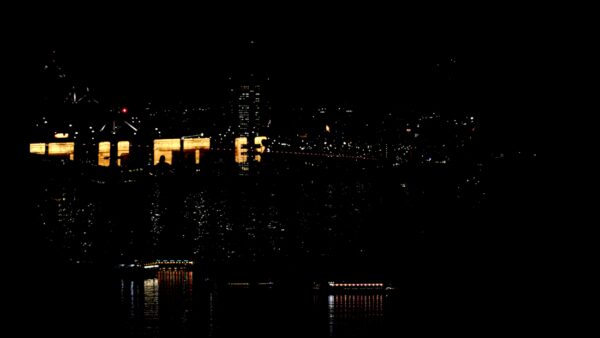
The Sower of Stars
by
Lois Patiño,
Spain,
2022,
25’
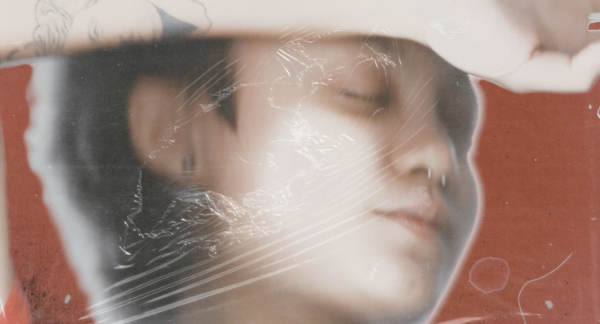
It’s Raining Frogs Outside
by
Maria Estela Paiso,
Philippines,
2021,
14’

Exalted Mars
by
Jean-Sébastien Chauvin,
France,
2022,
18’
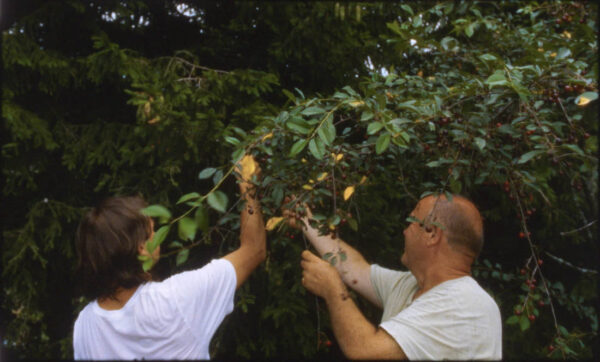
Cherries
by
Vytautas Katkus,
Lithuania,
2022,
15’
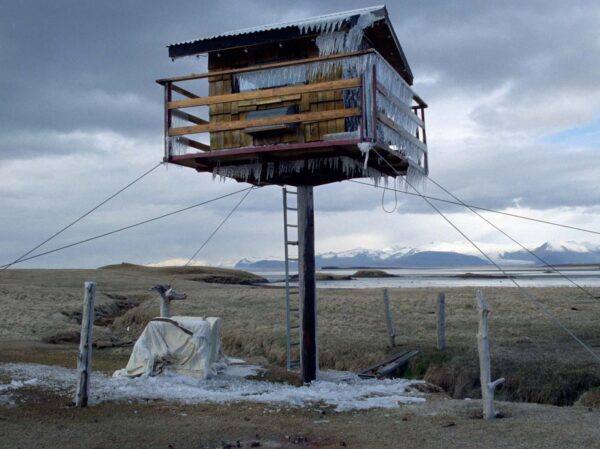
Nest
by
Hlynur Pálmason,
Denmark,
Iceland,
2022,
22’
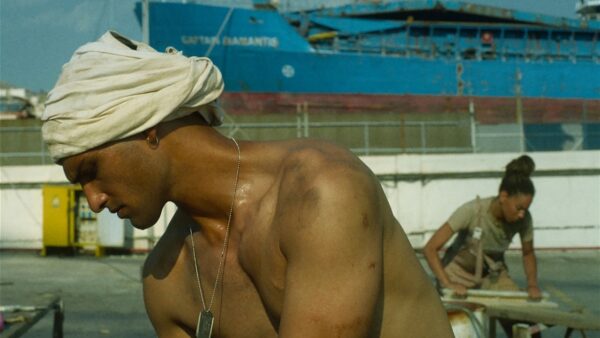
On Xerxes’ Throne
by
Evi Kalogiropoulou,
Greece,
2022,
15’
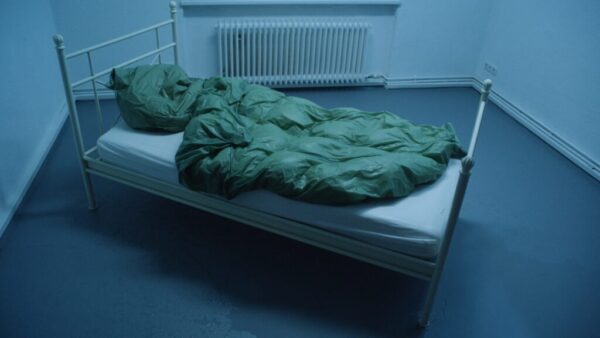
Handbook
by
Pavel Mozhar,
Germany,
Belarus,
2021,
26’
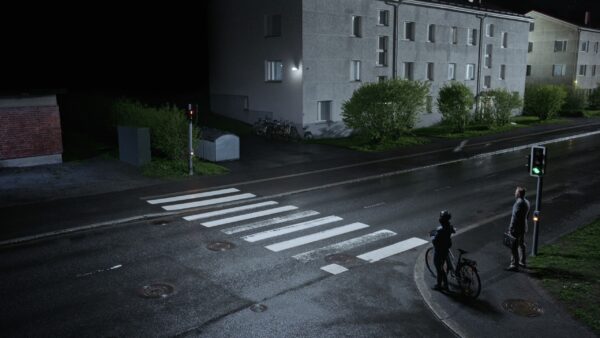
The Human Torch
by
Risto-Pekka Blom,
Finland,
2022,
5’
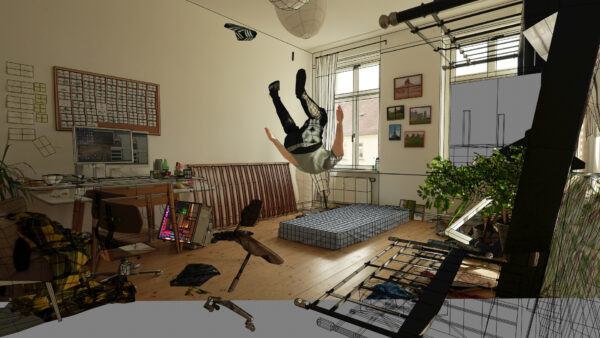
backflip
by
Nikita Diakur,
Germany,
2022,
12’

